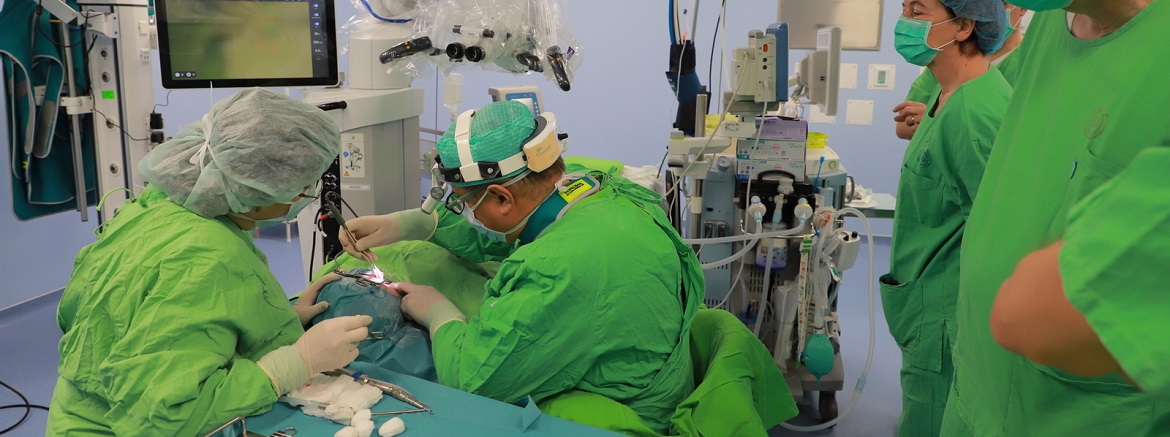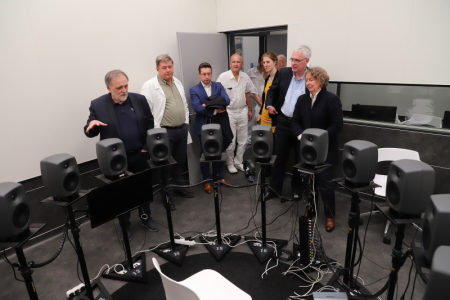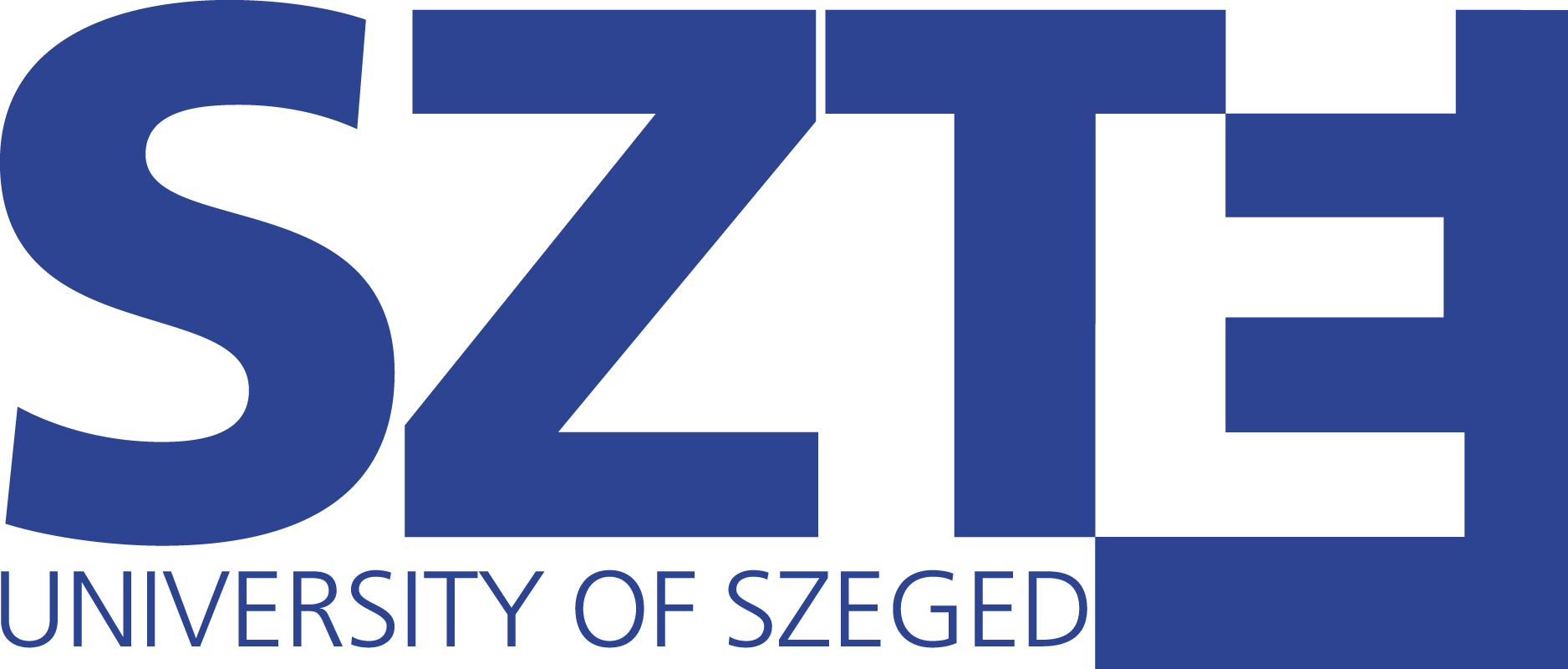
Low risk, huge success. This is how the hearing improvement surgeries, of which more than a thousand have already been performed at the Szent-Györgyi Albert Clinical Center of the University of Szeged, can be characterized. Cochlear's implant helps young children born deaf and also provides a solution for hearing loss in old age. In Szeged, representatives of Cochlear company discussed further development opportunities with the medical team led by László Rovó.
Today, the University of Szeged performs hearing-improving surgeries routinely, which even 15 years ago seemed impossible. Children born deaf get their hearing back, so they can live a full life, but they also correct the hearing loss of elderly people, thus enabling them not to be isolated from society. All this is made possible by the device of which Cochlear is the largest manufacturer worldwide. In Szeged, the representatives of the Australian-based company consulted with the doctors and specialists of SZTE about further possibilities of cooperation. The importance of the company is clearly indicated by the fact that more implant users choose their products than all other manufacturers combined.
 |
| Gallery |
The Vice President of Advanced Innovations and Technology Investments of the market-leading company Cochlear, Catherine Picard, came personally to see the surgeries in Szeged and learn about other areas of SZTE that can be involved in development. Cochlear is much more than the most important player in the implant market: for them, their activity is a mission.
– Our success comes from our mission, because our goal is to bring the opportunity that these implants represent to as many people as possible. Unfortunately, for the time being, we are only able to reach an estimated 5% of people suffering from potentially curable hearing loss in old age worldwide, and the main reason for this is that many of those who could be helped by this device do not even know about its existence, which is why our goal is also to spread awareness. We are working to rapidly increase this number and make it known that this technology already exists, - said Catherine Picard, Vice President of Advanced Innovations and Technology Investments at Cochlear.
During the visit, the company's representatives gathered positive experiences about the University of Szeged.
– In the clinical center of SZTE, there is one of the best-equipped operating rooms in the world, which can also be used for cochear implants. This, as well as the related infrastructure, explains why we are able to cooperate with the world's leading implant manufacturer. We can also perform examinations and interventions that are only possible in very few places in the world. The original idea for these implants came from the Cochlear company, they created a great foundation on which to build. Thanks to our increasingly strong cooperation, we are now able to cooperate effectively not only in the field of medicine, but also in the development of electrophysiological devices, which is thanks to our outstanding materials science research groups. SZTE also proves in this project that it can show new things on a very large scale, in any field - underlined Prof. Dr. László Rovó, Rector of SZTE.
The company's representatives spent a whole day at the University of Szeged with the aim of getting to know the experiences gained by the group led by Prof. Dr. László Rovó during the hearing improvement surgeries. Scientists are looking for optimal electrophysiological solutions, for example, what is the optimal placement of electrodes during surgery or what is the most suitable level at which it is worthwhile to stimulate the nervous system and affected nerves of the patients. All of these help to develop the most appropriate therapy and the best tools in the future.
– We could significantly improve the health status and social quality of life of many people. One of the important elements of this is that, in constant consultation with the best doctors and specialists, we try to make cochlear implants even more perfect and widely applicable. We cooperate with knowledge bases such as SZTE. The world-class infrastructure, the outstanding expertise and the motivation of those involved make it possible to discuss the development of our devices in Szeged. This cooperation has been going on for decades, in the framework of which we share our experiences at quarterly meetings. Our company has been present in this field for more than forty years, and the secret of our success is that our products are highly efficacious and reliable. The other secret is that we always chose our partners with great care and cooperated with the best and most dedicated people, with whom we shared the goal of helping. The University of Szeged has been such a partner for decades - emphasized Catherine Picard.
- I think that we will be able to provide very valuable and new information about the development of future devices and the simplification of surgeries. This is also crucial from the point of view of the affected social strata in Hungary, as it becomes visible in this way that there is a solution to this serious problem, even in Hungary. International studies prove that investing in this area is a worthwhile investment even at the state level, as many people can be given back to society and their quality of life can be improved. Something similar to the state- and socially supported cochlear implantation system developed in Australia over the past forty years could be built in Hungary today. I am proud that the elements of this system are connected to Szeged - said Prof. Dr. László Rovó, who did not give up his calling, healing, and in addition to his rector's duties, whenever he has the opportunity, he constantly works for the patients, performs surgery.
The operation of the cochlear implant system would enable social integration for many more children born deaf. The best chance for an intervention that gives a full level of hearing is when, in cooperation with the neonatal wards, the babies who can be operated on are found, and this is done soon after they are 6 months old.
The specialists of the University of Szeged were among the first in the country to perform such interventions, led by Professor Jenő Cziegner, and even then they used the devices of the Cochlear company. The doctors working in university clinics not only provide treatment at a very high level in their field, but some groups also engage in research and look for innovative solutions.
There are more and more unique technical and medical developments at the University of Szeged, and wider collaborations are being built with other universities, clinics, and medical equipment manufacturers working in similar fields around the world.
SZTE's researchers and instructors can also pass on all these results to the students during education, who can thus acquire the most modern medical knowledge.
Ferenc Lévai
Photo: Anna Bobkó

